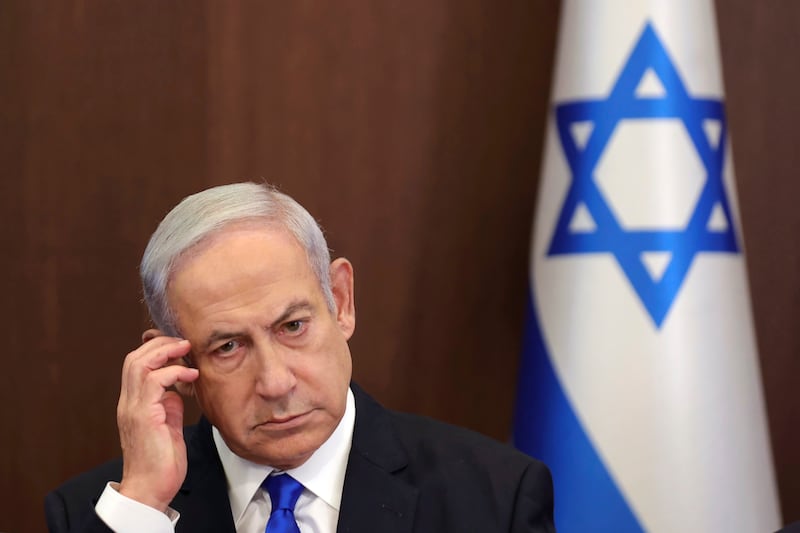IF JOE Biden is looking at his new diary for 2023 (I'm sure he got one in his stocking) he should maybe hesitate before pencilling in: "Go to Northern Ireland to celebrate the 25th anniversary of the Good Friday Agreement." Because if things continue the way they've been, there's precious little to celebrate.
There's been no government since it was collapsed by the DUP last February and little prospect of a return while the party continues its cock-eyed strategy which amounts to a re-run of No Home Rule.
And the longer it goes on, the less people will believe there is a viable means of governing here.
What's the alternative? Not joint authority, no matter how sensible that sounds, but a sort of 'direct rule by default' with the civil service in charge of the shop while Secretary of State Heaton Harris becomes like the Mr Grace of Are You Being Served?, waving a cane and telling the staff "You're all doing very well."
But maybe a US Presidential Visit could inject a bit of urgency that's been lacking over the past year? After all, George Mitchell insisted on a deadline back in 1998 because he knew politicians would want to go on their Easter break. He believed it would sharpen their focus.
Maybe Sunak, who's desperate for some positive headlines and a trade deal with the Yanks, will push his negotiators to come up with an agreement with the EU in time to get the candles ready for the GFA silver anniversary cake.
But this time it will need to be really oven-ready and not half-baked like his predecessor, Boris Johnson's offering.
There are straws in the wind. Leo Varadkar won't be playing golf at the K club with loyalist leaders any time soon, but he has already made soothing noises by saying mistakes were made on all sides when the Brexit deal was negotiated and perhaps the treaty was "a little bit too strict" so there's room for compromises.
There's talk of a deal based on red and green lanes to enable a smoother passage for GB goods to enter NI. And maybe the mandarins are also working on a way for Sir Jeffrey to sell it to his rank and file.
It won't be enough for 'No Surrender' Allister and the sage from Donaghadee, but nothing will appease that pair, and it's time sensible unionism – if it exists – faces them down.
Twenty-five years on, and the endless stops and starts at Stormont make it hard to even imagine the sense of optimism that once surrounded the GFA and the referendum that followed.
It was never meant to be set in stone, but allowing the changes at St Andrews to get the DUP across the line in 2007 was a typically short-sighted quick fix by Labour. What it set in stone was a two tribes carve-up which has left us with stalemate.
The British and Irish governments, the EU and the Americans were all keen to be owners of the triumph of the Agreement back in the day. Success has many fathers, but failure is an orphan. It's time their neglect ended.
The Agreement isn't operating in any of its three strands. Strand 1 – the Executive and Assembly – isn't sitting, Strand 2 – the north/south relationship via the north-south ministerial council – has collapsed with the Assembly, and Strand 3– British/Irish co-operation – has been damaged below the water-line by Brexit and its fall-out.
Under Johnson and his ERG loony wing, British/Irish relations sank to an all-time low. Sunak has improved the mood music, but he needs to go a lot further by reviving the moribund British/Irish Inter-governmental Council and making sure it acts to knock some heads together and stop waiting for the DUP and its cohorts to see reason.
The Irish government also needs to stop obsessing about the rise of Sinn Fein and start living up to its role as a custodian of the Agreement. It's time to haul it off to the repair shop where the bright minds that created it can start making it work properly.
Bertie Ahern was right when he said the protocol could be remedied because both governments had faced much bigger issues like freeing paramilitary prisoners, reform of policing and decommissioning weapons.
Equally, the GFA's flaws could be ironed out – like removing the veto that allows one party to pull the plug. It won't fix everything, but it's a start.







